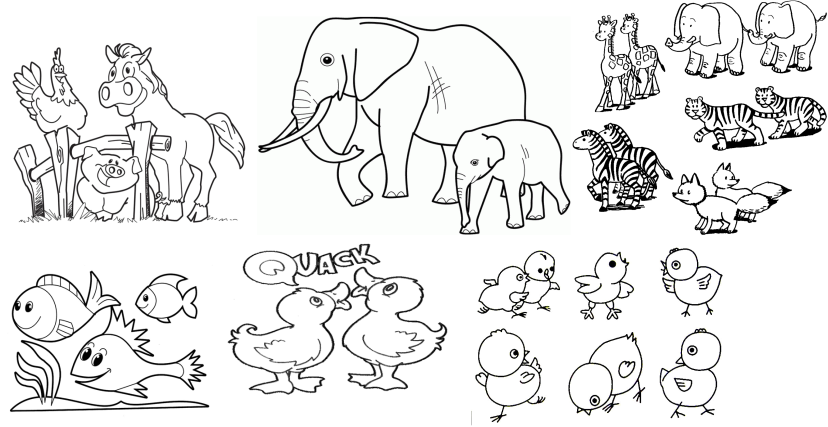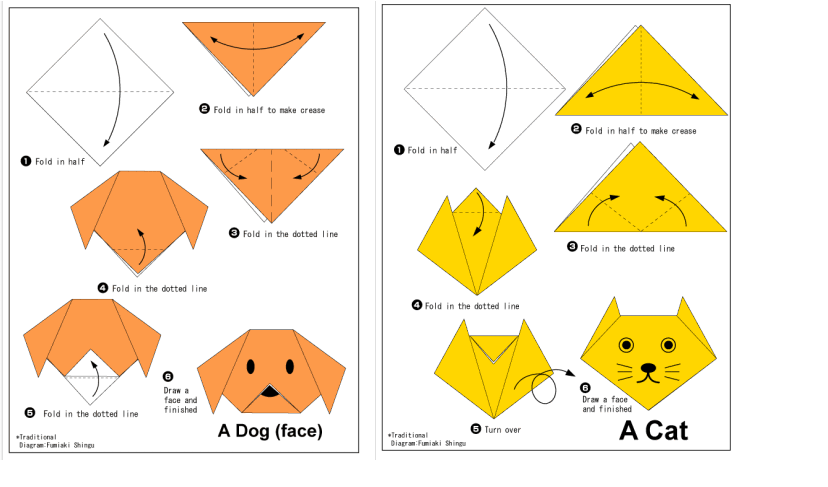Love and Respect the Animals
First: Opening prayer The Spiritist Volunteer will bring the book LEARNING HOW TO PRAY - A BOOK OF PRAYERS FOR CHILDREN by Elsa Rossi. The following story will be told:
Prayer for My Ill Cat
Dear Jesus, my little cat likes to play and it makes us laugh a lot.
Today he is not well, it is sad and refused to eat. Dad had to take him to the vet where I know he will get better.
Mummy said that we can pray for the animals. She also told me that w should leave him alone and give him some time to get better.
I am praying to you Dear Jesus, to ask for your help for my little cat to get better soon.
The Spiritist worker will introduce a box of prayer after the prayer and will ask for one child to volunteer himself/herself to read the prayer for the class. Please ask the child to say his/her words as well, as to complement the opening prayer.
Second: Welcome the children into the session. Say how happy we are to see them there and how important they are for the class. Sing songs together; get the children to remain standing but in a circle.
http://www.sermons4kids.com/jesus_is_my_best_friend_1x.pdf
http://www.sermons4kids.com/jesus_is_my_best_friend_1x.mp3
http://www.sermons4kids.com/jesus_loves_the_little_children.pdf
http://www.sermons4kids.com/jesus_loves_the_little_children.mp3
Third: Distribute envelopes with animal puzzles to the children. Ask each child to assemble theirs. Please see suggested pictures below taken from the internet.

Fourth: Ask the children the following and listen to their individual answers:
- Ask what is in the picture that they assembled.
- Does anyone know or has any of these animals home? What do they eat? How do they live? Do they all have the body covered by the same type of skin? (feathers, furs...)
- Which of these animals are useful to man; help men?
- What is the use of them to man? (Horse – Transport; Chicken - eggs, meat; Cow - milk, meat, leather for clothing, shoes, etc.).
- What type of care should we provide to the animals?
- How should we treat them? (E.g. not mistreat the animals; feed them, give them water, bathe them, care for them…)
Fifth: Colouring activity – ask each child to draw their favourite animal and explain why they chose that animal.
Sixth: Ask the children who created the animals. They are God's creation. Living beings are created by God and deserve our love, respect and care. They are very sensitive as they are living beings; they can feel joy and suffering. The animals are very important to life on Earth. They maintain the balance of creation and beautify nature; when domesticated they become our friends. They are part of the harmony of the Universe; are useful to man and nature. It is important to preserve and live in harmony with animals.
- What are some things that you need to survive? (food, water, shelter)
- What kind of house do you live in?
- How does the house protect you? (It keeps you warm in winter and cool in summer.)
- What do you do if you get sick? Can you do anything to keep from getting sick?
- Do animals have the same needs as humans? (yes)
- Do you have wants? (Yes, playing, new clothes, going to sporting events, etc.)
- Do animals have wants? (Yes, walks in the park, a comfy bed, toys, etc)
- Can animals tell you all of their needs and wants? If so, how? (Yes, some dogs will go and get their leash or scratch on a door to ask to go outside, stand by their empty water bowl, gerbils hide when they want to be alone, cats meow when they are hungry).
- How do you show kindness and respect to your animals?
Seventh: Exercise - What other “things” pets and people need/want that are more abstract?: (family, love, attention, training/education, time, care, touch, trust.)
Children can sort cardboard cut-outs or picture representations of these words into the stacks. (heart = love; school = training/education; clock = time; etc.)
Eighth: Mimic animals – the volunteer will say out loud the name of an animal and the children will need to mimic this animal. They will also need to make the sound that’s related to that specific animal.
Sing the song:
Old MacDonald had a farm, E-I-E-I-O,
And on that farm he had a [animal name], E-I-E-I-O,
With a [animal noise twice] here and a [animal noise twice] there
Here a [animal noise], there a [animal noise], everywhere a [animal noise twice]
Old MacDonald had a farm, E-I-E-I-O.
Ninth: Origami activities, taken from the internet.

Tenth: Get the children to help cleaning the room; one of the children will do a closing prayer; encourage the children to volunteer for this task. If they don’t want to collaborate we could say we will follow the letters of the alphabet. The child’s name that starts with the letter A will do the opening prayer this time. Everybody will have the chance to collaborate.
Extra activity.
Closing prayer
Class suggested being suitable for: Kindergarten (5 to 6 years old).
Spiritist volunteer: Carolina von Scharten, London, linked to BUSS - The British Union of Spiritist Societies.


[Classes]
|
[Print]




